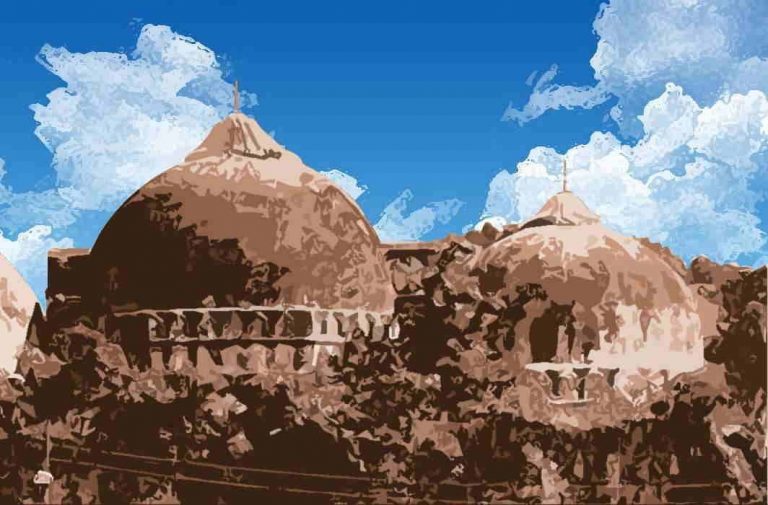
The apex court on Tuesday was told by the Nirmohi Akhara, one of the parties in the Ayodhya land dispute that the inner courtyard was always in possession of the Nirmohi Akhara. And Sita Rasoi, Chabutra and Bhandar which were part of the outer courtyard were never a part of dispute.
Senior advocate Sushil Jain, appearing for Nirmohi Akhara said: “The suit was filed by the Sunni Party in 1961 and there was no dispute with respect to the outer courtyard. The original suit of 1989 was also concerned with inner courtyard only. The muslim party was never allowed to enter the temple gate since 1932. The janmasthan now known as janmabhoomi is the birthplace of lord Ram and belongs to the plaintiff No.1.”
Jain further contented: “The Akhara has been managed by the mahants of the akhara and the akhara also provided refuge to Rani Laxmibai of Jhansi. My prayer is for removal of the receiver and for having the possession and management rights.”
Referring to the findings of the court on the various issues involved in the Suit, Jain said the Muslims never made any prayers in the Mosque subsequent to the year 1934.
“The Muslim party has failed to prove that the mosque was constructed by Emperor Akbar in 1528. Under Muslim Law, no one can construct a mosque over another’s land without the permission and consent of the person in possession of land,” Jain said.
Jain added: “Justice Khan has observed that even if limitation is there, the suit will be decided by declaration. In 1855 when there was a division the outer portion was given to Nirmohi Akhara.”
The bench questioned Jain: “One of the findings is that there is no starting point to determine the time of division. How can you invoke article 47 when you don not have a final order? From the dates specified in the article. If there is no final order then how will the time run?”
Jain replied: “I am invoking article 142 for possession of immovable property. Hence I am within limitation.”
The bench asked: “Dispossession has to be voluntary whereas attachment is an involuntary act remarks.”
The matter will continue tomorrow.
The apex court constitution bench comprising CJI Ranjan Gogoi and Justices S A Bobde, D Y Chandrachud, Ashok Bhushan, S A Nazeer was hearing pleas in the Ram Janmabhoomi–Babri Masjid land dispute case in Ayodhya.
—India Legal Bureau

